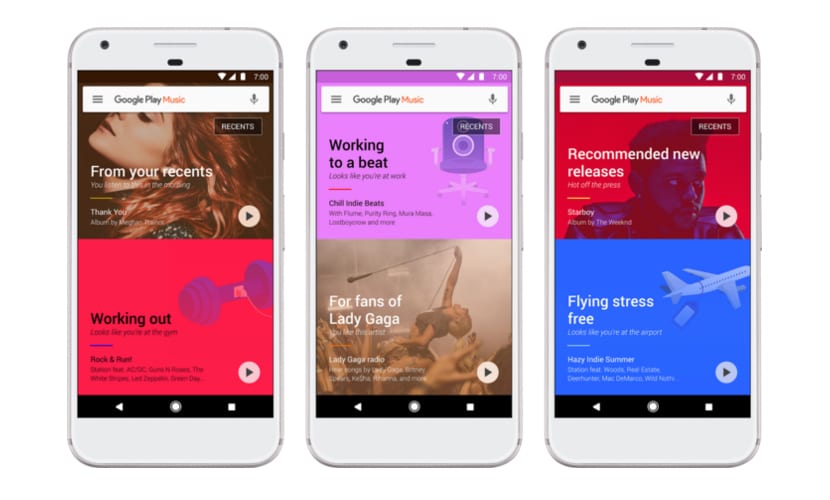
Google Assistant uses some very striking facets, such as this very curious and special one, but there is one that stands out above all, and that is the ability it has to understand the context of the questions. That is, if you ask him "What is the capital of Spain?", He will answer with Madrid, so that, when you ask "And its population?", He will understand that the question is related to Spain. This allows for a more natural relationship with an assistant who aims to look more like a person than they ultimately are, a limited amount of code.
The context is also going to be the axis for some of its best applications, such as with a renewed Google Play Music that will have that "intelligent understanding" as a special function. It will have the use of «machine learning» and clues such as location, activity and time, so that the app recommend certain playlists that are able to fit the emotional or sensitive needs of the user.
The context as the central axis
Elias Roman, Lead Product Manager for Google Play Music, he explains in this way:
Google's mission is to make the information world is accessible and useful to people. There is a role for Google to play music in a similar way.
If Google Now succeeds in advising or recommending the user to leave the airport to avoid traffic at an exit, Play Music will work in such a context-centric way. This will mean that every time you open the app, the main screen will be made up of a new selection and dedicated for that special moment. This is that if you open the app when it is a Saturday night, you will find playlists more appropriate for that time. This totally changes when you are at your house on a Sunday night to find some more related for a moment of relaxation.

It should be noted that "machine learning" takes advantage of the use you give the application. The more you use it, the more you will be able to get closer to your tastes and recommend certain lists in those special moments. Google Play Music relegates in a series of data sets that are related to the Google account: from what can be the search history, Maps, YouTube and more.
Comparing this feature on Spotify
To better understand what the difference between an app that relies on context to one that fixes weekly charts can mean, we can look at Spotify. An app that is good for discovering new songs and artists, but that every Monday and Friday morning "Hang up" a static list It won't change in seven days. This app also has lists for different moments or states, but it will not be updated as much as Play Music can, which will "catch" in what circumstances and when you are to indicate those songs that can come in handy.

The reason why Play Music can become one that is attentive to the user is because the team that is developing it comes from Songza, a New York startup, which was in charge of creating playlists that fit into an activity or emotional state. The only thing in that app users needed to tell you when they were. Here, in Play Music, that contextual information is taken from the Google account, which by itself provides very special data to conform those topics to recommend.
The big G has a big trump card going for it here, as all of those data collected daily from users they will serve to provide you with the best musical recommendations. A quick example is when you get off the bus on a Monday after the weekend at 8:00 in the morning, the rain falls and you find yourself in a cold November. With these many variables, Play Music will recommend music that is perfect for you without you having to think much.